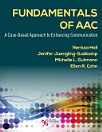Artificial Intelligence, Extended Reality, and Automation in Speech-Language Pathology: Integrating Technology Into Clinical Practice
About this ebook
This first-of-its-kind resource provides practicing SLPs with a solid foundation in Artificial Intelligence (AI), Extended Reality (XR), and automation, equipping practitioners with the knowledge and skills to integrate these innovations into daily practice. Emphasizing application across assessment, intervention, workload management, and consultation services, it serves as a comprehensive guide to enhancing both clinical effectiveness and patient outcomes.
Up-to-date research, guidelines for practical application, and future-oriented perspectives demonstrate how SLPs can apply digital solutions today while preparing for tomorrow’s evolving landscape. With a strong emphasis on ethical considerations, this text promotes the responsible adoption of technology to ensure that it enhances, rather than replaces, the human expertise central to care.
Rich with resources and actionable guidance, this essential text positions SLPs at the forefront of innovation and the future of their profession.
Key Features
Comprehensive Coverage of Cutting-Edge Technologies: Covers AI, XR, and automation, highlighting how these tools are currently applied and can be further harnessed in speech-language pathology.
Application and Real-World Examples: Goes beyond theoretical discussions, providing direction for implementation through case studies and real-world examples.
Focus on Ethical and Practical Considerations: Addresses critical ethical and practical considerations unique to each system, covering topics such as privacy, data security, and integration challenges.
Resource Accessibility and Comprehensive Guide: Designed to be a one-stop guide for practicing clinicians, providing foundational theories, insights, and resources for SLPs.
Future-Oriented Insights: Each section of the book ends with a forward-looking perspective, discussing future advancements and their potential impact on speech-language pathology.
Please note: ancillary content such as downloadable checklists, tables, and chapter summaries are not included as with the print version of this book.
About the author
Michelle Boisvert, PhD, CCC-SLP is a doctoral-level clinician providing and supervising high-quality speech and language services on-site and remotely in a public school and private practice setting. Dr. Boisvert received her PhD in Communication Disorders from the University of Massachusetts Amherst in 2012, where she investigated the viability, use, and effectiveness of telepractice for the online delivery of speech and language services, specifically for individuals with autism spectrum disorders. Her research helped validate this method of service delivery and has informed her clinical and entrepreneurial work post graduation. Driven by a passion for leveraging technology to ensure access to high-caliber services and to enhance workload efficiency, Dr. Boisvert subsequently cofounded and developed the software easyReportPRO.com, a division of WorldTide, Inc. The customizable easyReportPRO is an innovative online platform designed to streamline report writing for speech-language pathologists (SLPs) using customizable, automated templates. With a focus on continuous improvement and a drive to advance tech-based resources for SLPs and related fields, Dr. Boisvert has always been committed to bridging the gap between clinical work and technology, offering SLPs tangible and practical solutions to reduce manual tasks and improve professional outcomes. Dr. Boisvert has published several articles in peer-reviewed journals on the topic of telepractice and is the former editor for the Perspectives on Telepractice (a journal published by Perspectives of the American Speech-Language-Hearing Association’s Special Interest Groups [ASHA’s SIG 18]). Dr. Boisvert provides training on the use of telepractice and has spoken at national and international conferences on this topic. She also offers professional training on entrance and exit criteria for speech and language services for students in U.S. public schools, specialist and teacher collaboration methods, as well as caseload management strategies that incorporate the use of artificial intelligence, extended reality, and automation.
Nerissa Hall, PhD, CCC-SLP is cofounder of Commūnicāre, LLC, and the Speech Language and Literacy Center at Tate Behavioral, Inc. Dr. Hall’s love for applied technology started as an undergraduate studying psychology at the University of Massachusetts Amherst where she was encouraged to apply for an internship with the speech-language pathologists working for the Department of Developmental Services (DDS). Her volunteer experience turned into a dual major (psychology and communication disorders) and a speech-language pathology assistant position with DDS, where she assumed responsibility for designing and developing lite-tech augmentative and alternative communication (AAC) systems, as well as programming and implementing high-tech speech-generating devices for adults with complex communication needs. Dr. Hall went on to get her master’s and PhD degrees from the University of Massachusetts Amherst. Her clinical work and experiences, upbringing in Cape Town, South Africa, plus her desire to ensure access to high-quality AAC services irrespective of geographical locale, evolved into her clinical work and research interests focusing on AAC, tele-AAC (AAC service delivery online), and the innovative use and application of current and available technology to support access and enhancement of AAC for people with complex communication needs. During her doctoral program, Dr. Hall cofounded Commūnicāre, LLC (a private practice focusing on AAC), with her mentor and colleague, Hillary Jellison. Together they developed a specialty practice, pioneering innovative AAC assessment, intervention, and consultation work. They extended their reach by incorporating synchronous (real-time) and asynchronous (overtime) telepractice to diversify their methodology and application of clinical services through collaborative research and service delivery. Since graduating, Dr. Hall has continued to grow her practice, merging with behavioral health leaders at Tate Behavioral, where clinical practice is merged with rigorous data collection to systematically explore innovative technologies and refine service delivery outcomes for neurodivergent individuals with complex communication needs, benefiting from AAC. Dr. Hall has presented nationally regarding AAC, tele-AAC, and artificial intelligence (AI). She has served as a LEND Fellow, adjunct faculty at Elms, Cambridge College, and UMass-Amherst. Dr. Hall coedited Tele-AAC: Augmentative and Alternative Communication Through Telepractice and Fundamentals of AAC: A Case-Based Approach to Enhancing Communication, and is passionate about advancing the field to ensure meaningful outcomes for individuals with complex communication needs, those using AAC, and the teams and communities that support them.





